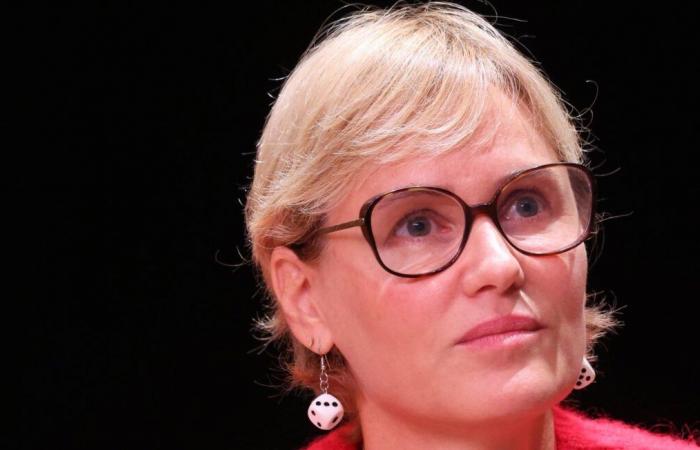On the occasion of November 25 and the fight against violence against women, Judith Godrèche was in Lyon on Tuesday evening to present her short film Me tooinvited by the metropolis and the Women here and elsewhere association, to the Lumière institute. Last February, when she denounced the rapes she suffered by filing a complaint against Benoît Jacquot, the actress and director received more than 5,000 messages in two weeks from people to whom the same thing had happened. Having become an icon in this fight, the artist wanted to “pay homage” to these testimonies through this film.
Since the beginning of September, Judith Godrèche has regularly paid tribute to another woman in her Instagram posts or in her speeches: Gisèle Pelicot, drugged by her ex-husband and raped by more than 80 men for around ten years at her home in Mazan.
During the screening of the short film in Lyon, many people noted “links between this film and this trial”. The actress returned to 20 Minutes on this affair and what the story of Gisèle Pelicot says about French society.
What link can you make between your story and that of Gisèle Pelicot?
Even though I was not subjected to chemical submission, I was under the influence. It is the question of consent which is at the heart of the subject. Everything is intertwined. What Gisèle Pelicot’s story says, and what she herself says, is that we can no longer turn our heads in the face of this reality: we live in a society that trivializes rape.
What does Gisèle Pelicot mean to you?
Thanks to his courage in closing the trial, the media picked up his story. We must continue to relay and publish our words endlessly. I quote her again: “It is high time that the macho and patriarchal society which trivializes rape changes. It’s time we change our outlook on rape. »
By clicking on“I accept”you accept the deposit of cookies by external services and will thus have access to the content of our partners.
More information on the Cookie management policy page
I accept
What does this lawsuit tell us about society?
He tells us that we can no longer pretend not to know what is happening. We can no longer deny this vision that men have of women and all these power relations that they exercise over them. However, I have the feeling that there is still resistance to this reality. There is a real patriarchal problem in our country that is not going to be resolved any time soon.
For what ?
Unfortunately, society is not changing. It is not because we are watching this trial and hearing this woman tell us that macho and patriarchal society needs to change that it is doing so.
We notice this in the government announcements of November 25. We are not talking about “systemic violence” that happens in our “patriarchal society”. None of these words, ever, are uttered by our politicians who are supposed to represent our population.
What did you think of the measures announced by Michel Barnier?
I didn’t hear what I wanted to hear. It will now be possible to file a complaint in hospitals. Alright. But where are the staff? Feminist associations say it every year: there is a huge need for money [2,6 milliards d’euros] to speak out and support victims, but also to carry out prevention and awareness-raising about gender-based and sexual violence. For the moment, the political response does not exist.
Learn more about gender-based and sexual violence
I want to ask: Michel Barnier, did you hear what Gisèle Pelicot said? She did not ask for “experimental measures”, she said that we were in a “patriarchal and macho society which must change”. So that’s what the Prime Minister should have said. We must take her words word for word, say that we have heard and understood her in order to change things. The revolution that Gisèle Pelicot is calling for is not going to happen with these scoops.






